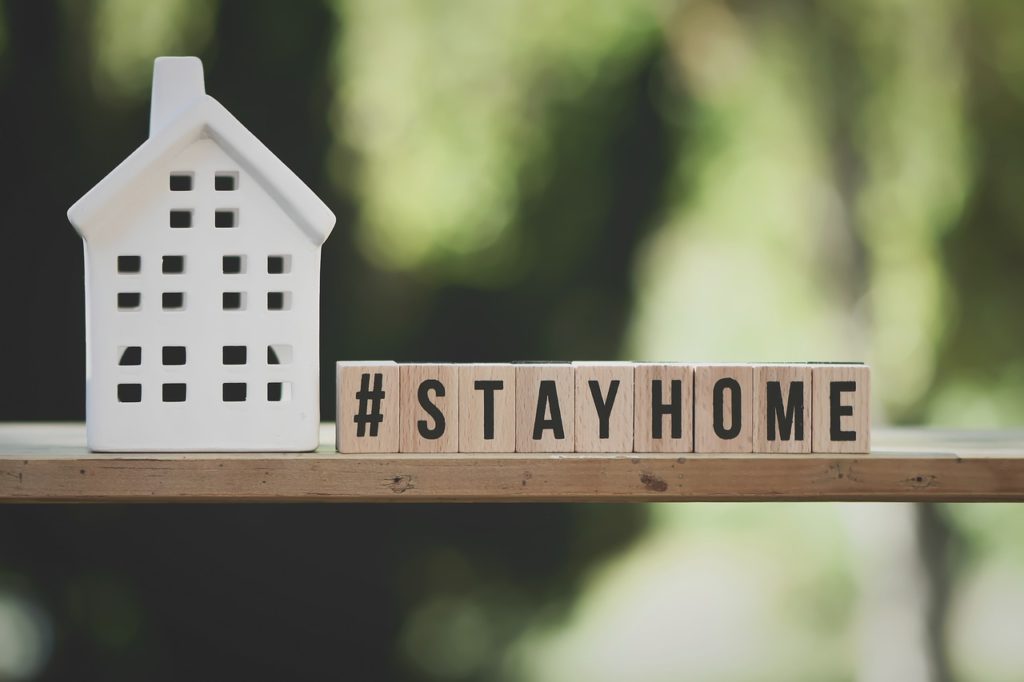 In this era of the coronavirus pandemic, it is more important than ever to maintain a strong sense of safety when administering senior home care, both for yourself and for elderly persons. Given the fact that seniors with underlying health issues are the prime targets for this disease, it is critical that no traces of the disease are introduced into the environment where senior care is being delivered, both in Hernando and elsewhere around the country. Seniors are very likely to have less robust immune systems than are younger individuals, and that makes them particularly vulnerable to the coronavirus. Here are some ways you can help keep your senior loved one protected against this deadly virus.
In this era of the coronavirus pandemic, it is more important than ever to maintain a strong sense of safety when administering senior home care, both for yourself and for elderly persons. Given the fact that seniors with underlying health issues are the prime targets for this disease, it is critical that no traces of the disease are introduced into the environment where senior care is being delivered, both in Hernando and elsewhere around the country. Seniors are very likely to have less robust immune systems than are younger individuals, and that makes them particularly vulnerable to the coronavirus. Here are some ways you can help keep your senior loved one protected against this deadly virus.
Screen home visitors
Anyone who visits your home is a potential carrier of the virus, and that means you’ll need to carefully screen all these individuals before allowing them access to the home environment. It may seem like an unfriendly thing to do, but it’s better to seem unfriendly than risk introducing coronavirus to your household. Make sure visitors are not experiencing fever, coughing, shortness of breath, or any other kind of sickness, and if any of these symptoms are in evidence, it’s best to be on the safe side and cancel the visit.
Maintain constant cleanliness
Keep yourself clean, particularly your hands, since they are the best transmitters of the virus. You can do this effectively by washing with warm, soapy water for at least 20 seconds, or by using a good hand sanitizer which contains 60% alcohol or more by volume. Extend the cleanliness concept by wiping down all commonly used surfaces around the home, especially door handles, countertops, light switches, bathrooms, and tables. A good sanitizer should kill all the germs which might otherwise stay alive on these surfaces, and infect the next person to touch them.
Be wary of transportation systems
Public transportation systems are especially dangerous, because it’s literally impossible to know whether any exposed surfaces have been touched by an infected person, and that means you are exposed to the virus as well. If public transportation is your only recourse for getting to a doctor’s office or some other essential service, try to choose a transport method which is not crowded so you won’t be squeezed in with lots of other patrons. Avoid touching surfaces like poles on a subway train, and after traveling, you should immediately wash your hands. You should avoid traveling on airplanes or cruise ships altogether, and if this is impossible for some reason, carry some wipes with you so everything can be wiped down prior to touching it.
Avoid social gatherings
Now is not the time to arrange parties or other gatherings of people, because this dramatically increases the chance that you will be exposed to the virus, possibly by someone who has no symptoms themself but is simply a carrier of the virus. When it’s necessary to go shopping for groceries, make sure that the store engages in sanitary practices for all customers, or carry your own wipes to clean off shopping carts. Don’t expose yourself to public places where large numbers of people might gather, or where they have gathered in the past because there’s no way to tell if sanitary practices are in effect there.
Exercise at home
You should definitely not give up exercise during this period of quarantines and lockdowns, but try to limit most of your exercise to the confines of your home, where you can be more certain of good hygiene and sanitation. By limiting your exercise to your own home, you can reduce exposure to individuals who may be infected, and you’ll avoid contact with surfaces where the virus may be living, ready to infect the next person who touches that surface. There are lots of exercises you can do right at home that will give you all the benefits of good cardiovascular exercise, as well as stretching for mobility.
Health care appointments
You’re probably safer to re-schedule any recurring appointments you have, such as dental check-ups, for a time six-months in the future if possible. Doctor’s offices play host to large numbers of people in the course of a single day, and that can be dangerous in terms of the possibility of becoming infected. Obviously, if you have a critical health care appointment, you’ll have no choice but to keep the appointment, because that would over-ride any concerns about coronavirus, but for all other recurring appointments, you should consider deferring them to a later date.
Notify your doctor about illnesses
If you’re normally pretty healthy, and you come down with some kind of illness, you should notify your doctor as soon as possible. Especially if your symptoms include fever and/or coughing, you need to contact your physician at the earliest opportunity. Older people are impacted to a greater extent than any other age group by coronavirus, so you need to be constantly aware of your health status, and take steps to maintain good health. By following the recommendations above, you’ll have a better chance of avoiding this virus and surviving until a vaccine is developed.
